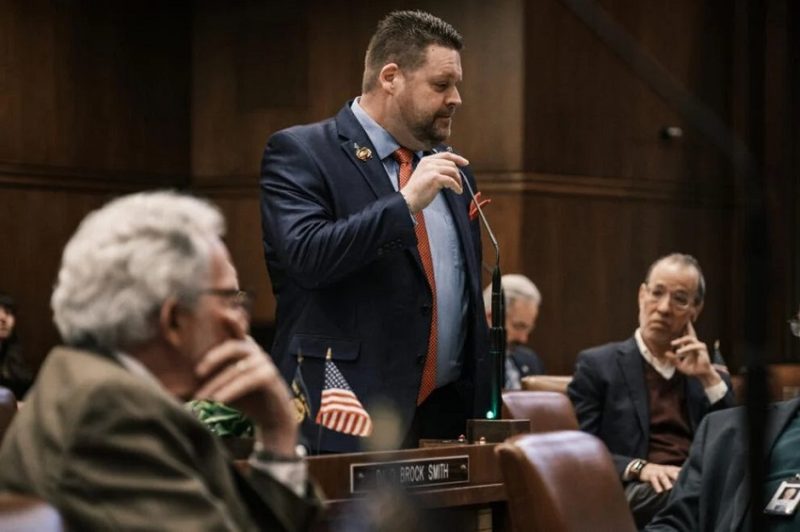Medford, Ore. – The Oregon Senate voted Tuesday to pass Senate Bill 83, which seeks to repeal the controversial statewide wildfire hazard map. The bill received bipartisan support, signaling a shift in the ongoing debate over wildfire risk and its impact on property owners.
Senate Bill 83, introduced to the Oregon legislature earlier this year, garnered significant support from lawmakers on both sides of the aisle. The measure seeks to undo the effects of Senate Bill 762, which established the wildfire hazard map in 2021. Developed by the Oregon Department of Forestry and Oregon State University, the map categorizes residential properties into low, moderate, or high wildfire risk zones. While its goal was to provide a clear picture of fire danger across the state, the map has sparked considerable backlash, particularly in Southern Oregon.
Supporters of the repeal argue that the map has caused undue harm to homeowners, who worry it could lead to increased insurance premiums or, in some cases, the cancellation of their policies. Senate Bill 82, passed in 2023, aimed to protect property owners from such consequences by prohibiting insurance companies from raising rates or canceling coverage solely based on wildfire risk. Despite these protections, many homeowners in the Rogue Valley reported experiencing increased rates and policy cancellations, fueling further discontent with the map.
Senator Noah Robinson, a Republican from Cave Junction, expressed his approval of the bill’s passage, calling it a “crucial step” in reversing what he described as a “flawed policy.” Robinson emphasized the need to restore control over landownership decisions to individual Oregonians rather than relying on state-mandated maps that could have unintended consequences.
“The damage caused by this policy is real, and today’s vote is a victory for the people who’ve been affected,” Robinson said. “It’s time to allow property owners to make their own choices without the government imposing unnecessary restrictions based on these maps.”
Senator David Brock Smith, a Republican from Port Orford, also voiced strong support for the repeal. He noted that it would take “years in the making” to undo the impacts of the wildfire hazard map, but he expressed optimism that the bill would progress through the House and ultimately reach the desk of Governor Tina Kotek.
“This is a long-awaited step forward,” Brock Smith said. “I look forward to seeing this bill signed into law and ensuring that Oregonians are not unfairly burdened by arbitrary wildfire hazard classifications.”
The passage of Senate Bill 83 was not only supported by Republicans but also by some Democratic lawmakers, including Senator Jeff Golden of Ashland. Golden, who represents an area heavily affected by wildfire risk, acknowledged the need for a more balanced approach to wildfire management.
“The safety of Oregonians must remain a top priority, but we must also consider the economic and personal impacts of policies that inadvertently harm homeowners,” Golden said in a statement following the vote. “I believe this bill takes the right approach in addressing these concerns.”
The controversial wildfire hazard map was finalized in January 2025, after years of development. While the state’s intention was to provide clear information about fire risk, the resulting classifications have left many homeowners feeling vulnerable. In addition to the concerns about rising insurance costs, some residents fear that the map could lower property values in high-risk zones, further complicating their ability to sell or insure their homes.
With Senate Bill 83 now approved by the Senate, attention turns to the Oregon House, where lawmakers will likely continue to debate the merits of repealing the map. If the bill passes through the House, it will move to Governor Tina Kotek for final approval. Should the bill be signed into law, it would mark a significant reversal of the state’s approach to wildfire risk management.
For now, residents in wildfire-prone areas can only wait to see whether the repeal of the hazard map will lead to greater stability in insurance markets and fewer concerns about the long-term impact on their property rights. The outcome of this legislative debate could have lasting effects on how Oregon balances wildfire safety with the rights of homeowners in the years to come.

